Related Research Articles
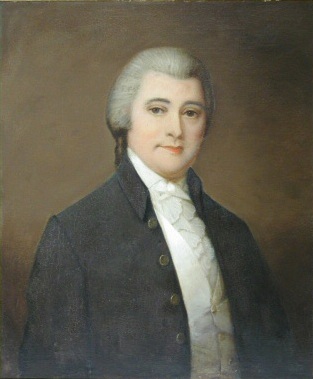
William Blount was an American politician, landowner and Founding Father who was one of the signers of the Constitution of the United States. He was a member of the North Carolina delegation at the Constitutional Convention of 1787 and led the efforts for North Carolina to ratify the Constitution in 1789 at the Fayetteville Convention. He then served as the only governor of the Southwest Territory and played a leading role in helping the territory gain admission to the union as the state of Tennessee. He was selected as one of Tennessee's initial United States Senators in 1796, serving until he was expelled for treason in 1797.
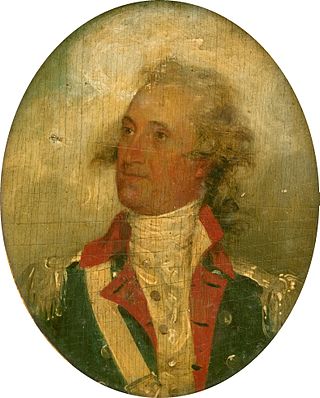
Thomas Pinckney was an American statesman, diplomat, and military officer who fought in both the American Revolutionary War and the War of 1812, achieving the rank of major general. He served as Governor of South Carolina and as the U.S. minister to Great Britain.

The Territory South of the River Ohio, more commonly known as the Southwest Territory or the old Southwest Territory, was an organized incorporated territory of the United States that existed from May 26, 1790, until June 1, 1796, when it was admitted to the United States as the State of Tennessee. The Southwest Territory was created by the Southwest Ordinance which was similar to the previous two ordinances passed by the Confederation Congress for the parallel establishment and development of the old Northwest Territory of 1786-1803. It pertained to lands situated north of the Ohio River, around the Great Lakes and extending west to the Mississippi River. The lands of the Territory were taken from western areas beyond the mountains of the Commonwealth of Virginia Western lands were also ceded by the state of North Carolina from lands of the Washington District that had been already ceded to the U.S. federal government by North Carolina.

George Washington Campbell was an American statesman who served as a U.S. Representative, Senator, Tennessee Supreme Court Justice, U.S. Ambassador to Russia and the 5th United States Secretary of the Treasury from February to October 1814.

Joseph Inslee Anderson was an American soldier, judge, and politician, who served as a United States Senator from Tennessee from 1797 to 1815, and later as the First Comptroller of the United States Treasury. He also served as one of three judges of the Southwest Territory in the 1790s, and was a delegate to the Tennessee state constitutional convention in 1796.
Absalom Tatom was a U.S. Congressman from North Carolina from 1795 to 1796.
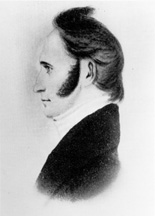
Alexander Outlaw Anderson was an American slave owner and attorney who represented Tennessee in the United States Senate, and later served in the California State Senate, and on the California Supreme Court.
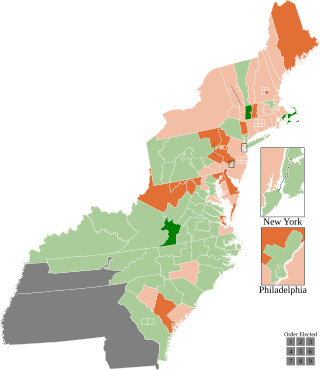
The 1796–97 United States House of Representatives elections took place in the various states took place between August 12, 1796, and October 15, 1797. Each state set its own date for its elections to the House of Representatives. The size of the House increased to 106 seats after Tennessee became the 16th state to join the union. The first session of the 5th United States Congress was convened on May 15, 1797, at the proclamation of the new President of the United States, John Adams. Since Kentucky and Tennessee had not yet voted, they were unrepresented until the second session began on November 13, 1797.
Tatum is an English toponymic surname. It derived from Tatham, a parish in North Lancashire. Notable people with the surname include.

The Government of Tennessee is organized under the provisions of the 1870 Constitution of Tennessee, first adopted in 1796. As set forth by the state constitution, administrative influence in Tennessee is divided among three branches of government: executive, legislative, and judicial.

John McNairy was a British-American federal judge of the United States District Court for the District of Tennessee, the United States District Court for the Eastern District of Tennessee and the United States District Court for the Western District of Tennessee.

Nathaniel Chipman was an American politician who served as a United States Senator from Vermont and Chief Justice of the Vermont Supreme Court. A Yale College graduate and Continental Army veteran of the American Revolution, Chipman became a prominent attorney and advocate for Vermont statehood. When Vermont was admitted to the Union, he served as the first judge of the United States District Court for the District of Vermont.
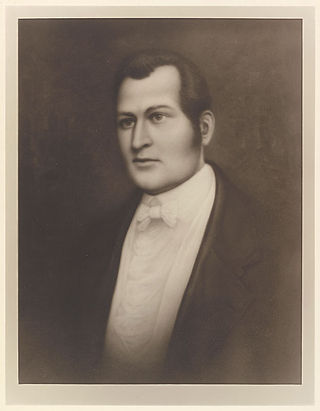
James Hawkins Peck was a United States district judge of the United States District Court for the District of Missouri.
John Patton Erwin (1795–1857) was an American Whig politician. He served as the Mayor of Nashville, Tennessee from 1821 to 1822, and from 1834 to 1835.
Thomas Gillespie was a large plantation owner in mid-to-late 18th-century North Carolina and served as commissary of the Rowan County Regiment in the North Carolina militia during the American Revolution. He spent his early life in Augusta County, Virginia before migrating to Anson County, North Carolina in about 1750, where he lived most of his life on Sills Creek in the area that became Rowan County, North Carolina in 1753. He and his wife and son were the first white settlers west of the Yadkin River. He owned a plantation of over 1,000 acres on Sills Creek in Rowan County, as well as 6,000 acres in the area of western North Carolina that became part of the state of Tennessee in 1796. He was an early elder in the Thyatira Presbyterian Church in Rowan County, which had been established by 1750. Thomas was the great-grandfather of U.S. President James K. Polk through the lineage of his daughter Lydia, who married Captain James Knox and gave birth to Jane Gracey Knox, mother of the President.